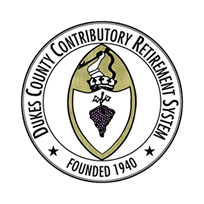Regular Compensation
Regular compensation is the amount of earnings upon which a member pays retirement contributions. Regular compensation will be used in determining a member’s final average salary, which is one of the factors used in calculating a retirement allowance. Compensation must comply with statutory and regulatory requirements in order to be pensionable. For a full description of “regular compensation” as defined by the Massachusetts General Laws, please see 840 CMR 15.03 .
Regular compensation generally includes:
- the annual rate of compensation in a member’s salary schedule,
- educational incentives,
- longevity payments made for length of service,
- premiums for holidays and shift differentials for police and fire,
- payments for rendering instructional training,
- hazmat pay for police and fire,
- on call or standby pay,
Regular compensation generally excludes:
- amounts paid for hours worked beyond the member’s normal work schedule (i.e., overtime),
- amounts paid as bonuses other than cost-of-living bonuses,
- payments which will not recur, and payments which will recur for only a limited or definite term (i.e., salary augmentation plan),
- amounts paid for unused vacation, sick leave, or other leave,
- severance pay,
- amounts paid as early retirement incentives,
- any payments made as a result of giving notice of retirement,
- amounts paid for housing and lodging,
- amounts paid for travel,
- amounts paid for clothing, uniform, tool allowances,
- amounts paid for annuities,
- amounts paid for expense payments,
- amounts paid for automobile usage,
- amounts paid for insurance premiums or for not participating in the employer’s health insurance plan.

